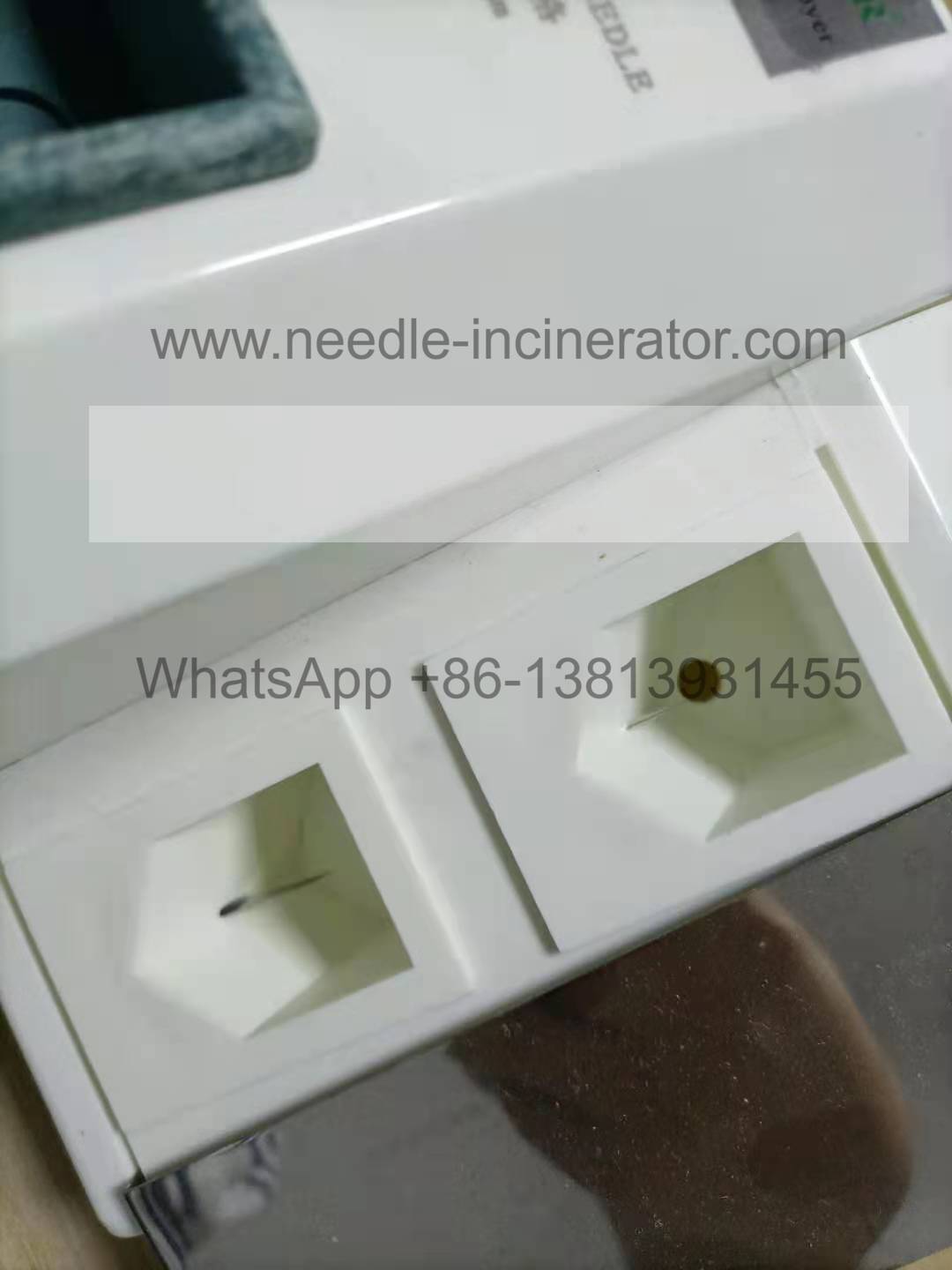Needle Incinerators: Safeguarding Healthcare Workers and Communities in Africa and Beyond
In regions like Lagos, Nigeria, and rural clinics across Kenya, improper disposal of medical sharps poses a critical threat to public health. Used needles and syringes, if not destroyed effectively, risk spreading HIV, hepatitis, and other bloodborne pathogens. This is where Clover Incinerator’s Needle Destroyers step in—a game-changing solution for immediate, safe, and eco-friendly disposal of biohazardous waste.
A Lifesaving Solution for Clinics in Underserved Regions
Hospitals like Mombasa County Referral Hospital (Kenya) and clinics in Kano State, Nigeria, face challenges managing medical waste due to limited resources. Traditional incineration methods are often expensive or impractical, leading to unsafe practices like open burning or dumping. Clover’s portable Needle & Syringe Destroyers address this gap by offering:
- Instant needle destruction at 1250°C, melting sharps into inert metal slag.
- Integrated cutting mechanisms to sever syringe barrels and infusion tubes, ensuring complete disposal.
- Compliance with WHO guidelines for infection control, critical in regions battling disease outbreaks.
For example, the Amana Hospital in Dar es Salaam, Tanzania, reduced needle-stick injuries by 70% after adopting Clover’s electric incinerators. Similarly, Al-Shifa Clinic in Cairo, Egypt, uses these devices to sterilize sharps onsite, eliminating risks of reuse or contamination.
How Clover’s Needle Incinerators Work: Combining Simplicity and Safety
Designed for clinics, labs, and emergency settings, Clover’s devices prioritize ease of use:
- High-Temperature Melting: Inserting a needle into the slot (#5) triggers rapid heating (2–4 seconds), reducing it to harmless debris.
- Syringe and Tube Destruction: Pressing syringe barrels against blade #7 cuts them, while slot #8 severs infusion tubes, preventing reuse.
- Automatic Safety Features: A red light (#2) alerts users to ash buildup, prompting quick cleaning with the provided steel brush.
Dr. Amina Hassan of Mogadishu General Hospital (Somalia) notes, “This device lets our staff destroy needles safely right after use. No more storage risks or delayed disposal.”
Key Applications for Needle Destroyers
- Clinics in Remote Areas: Ideal for mobile health units in Rwanda’s Eastern Province or refugee camps like Dadaab, Kenya, where access to centralized waste systems is limited.
- Laboratories and Pharmacies: Facilities in Dubai, UAE, use Clover incinerators to destroy research-related sharps daily.
- Public Health Campaigns: Nigeria’s National Immunization Program relies on portable destroyers to safely dispose of vaccination syringes.
User-Friendly Operation Guide
Clover’s devices simplify compliance with medical waste protocols:
- Power On: Connect to 220V AC. The green light (#2) indicates readiness.
- Destroy Needles: Insert into slot #5, rotate, and press. Sparks are normal—noise and heat ensure sterilization.
- Maintenance: Clean ash from slot #5 using the steel brush if the red light activates. Empty the waste box (#6) regularly.
Pro Tip: For syringes, press the barrel against blade #7 to slice it, or cut infusion tubes at slot #8—no loose debris left behind.
Why Choose Clover Incinerators?
- Immediate Sterilization: Melting at 1250°C kills 99.99% of pathogens, compliant with global safety standards.
- Cost-Effective: No need for offsite waste transport—ideal for clinics in Addis Ababa, Ethiopia, or Zanzibar, Tanzania.
- Durability: Built for high-volume use, with overload protection (#4) to prevent damage.
Join the Movement for Safer Healthcare
From Rabat to Johannesburg, Clover Incinerators are transforming medical waste management. Ready to protect your staff and community?
Visit https://needle-incinerator.com or WhatsApp/Call +86-13813931455 to learn how our Needle Destroyers can meet your clinic’s needs.
Keywords: Needle Incinerator, Needle Destroyers, Syringe Destroyers, medical waste management, biohazard disposal, Clover Incinerator, infection control, sharps disposal, hospital safety, Africa clinics, Middle East healthcare.
Word Count: 1,045

Comments are closed